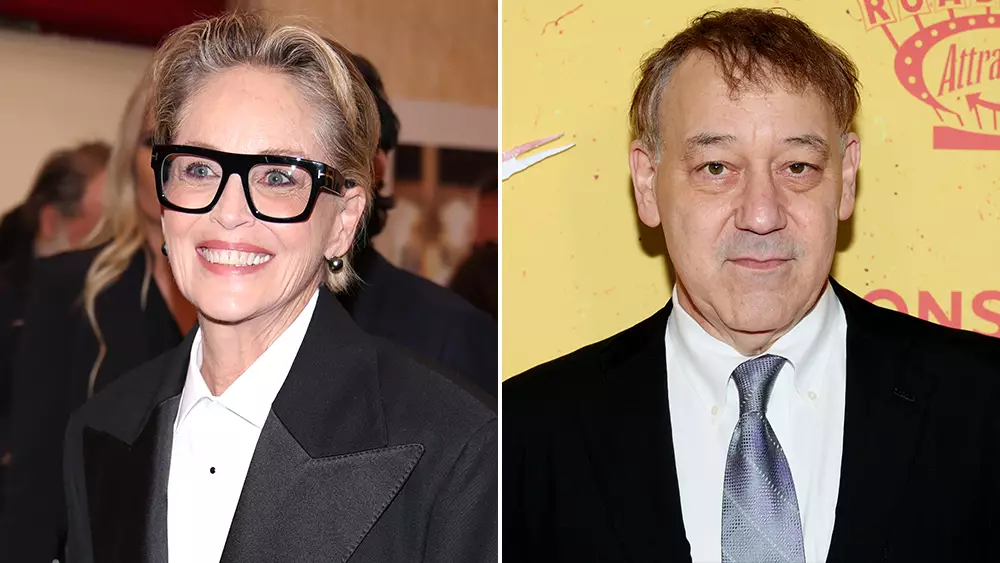Sharon Stone, a name synonymous with glamour as well as tenacity, recently shared her thoughts during a Q&A session at the Torino Film Festival. The conversation centered around her work in the 1995 film *The Quick and the Dead*, a revisionist Western notable for its ambitious narrative and unique character portrayals. Stone’s recollections reveal not only the complexities of her professional relationships but also the overarching themes of loyalty and gender in the film industry.
During the session, Stone expressed a candid critique of director Sam Raimi, who helmed *The Quick and the Dead*. While acknowledging his talent and contribution to the horror genre through films like *Evil Dead* and *Darkman*, she lamented the lack of emotional connection and loyalty she experienced from him. Stone contrasted this with her productive and longstanding relationship with Martin Scorsese, the legendary filmmaker behind *Casino*. The juxtaposition of these relationships raises questions about the impact of personality and culture in creative collaborations. Stone characterized Scorsese’s approach as imbued with a sense of family and loyalty, which contrasts sharply with her experience with Raimi, whom she described as being somewhat ephemeral in connection and gratitude.
Stone proudly highlighted her role as a producer in *The Quick and the Dead*, where she helped bring in emerging talent like Russell Crowe and Leonardo DiCaprio. This highlights her vision and ambition during a time when women’s roles in Hollywood were often relegated to the background. Her declaration that she had a “great Italian cinematographer” suggests that she was aware of the critical elements that contribute to the visual and narrative strength of a film.
Although *The Quick and the Dead* was initially met with mixed reviews and performed poorly at the box office, it has since gained a cult following. This transformation signifies the unpredictable nature of cinema and audience perception over time. Many films that fail to impress right away can evolve into beloved classics, often due to a reassessment of their themes or aesthetics. Stone’s character—a lone gunslinger seeking vengeance—certainly fits the mold of a compelling narrative that resonates with audiences seeking empowerment and retribution.
The film’s evolution from a box office underperformer to a cult classic mirrors Stone’s own journey. Throughout her career, she has faced stereotypes and challenges typical of a woman in Hollywood. Her remarks about bringing fresh talent to the forefront can also be seen as a microcosm of her struggles within an industry that often sidelines female voices.
Stone’s discussion also touched on her thwarted aspirations to direct. She recounted her experiences pitching a feature film, which was met with enthusiasm but ultimately denied because of her gender. Her assertion that the “resistance to women working” was overwhelmingly strong during the ’90s and early 2000s speaks volumes about the gender dynamics of that era. Stone’s experiences underscore a systemic issue in filmmaking, where male directors were often given more opportunities, further entrenching gender inequality.
According to Stone, her efforts to generate films were met with condescension, labeled as a setback for the artistic contributions women could bring. The frustration she expressed revealed not just a personal grievance but also highlighted a significant societal challenge—the struggle for female filmmakers to secure funding, recognition, and credibility.
Sharon Stone’s reflections at the Torino Film Festival offer an insightful glimpse into her career journey while also invoking broader themes surrounding loyalty and gender in Hollywood. Her candid comparisons between Raimi and Scorsese reveal much about personal relationships in professional settings, while her ongoing struggles to break through barriers for female directors reflect a larger, still-relevant conversation. As the industry evolves, Stone’s voice serves as a reminder of the road already traveled and the work that still needs to be done for future generations of women in film, making her insights valuable beyond the historical context of her experiences.


Leave a Reply